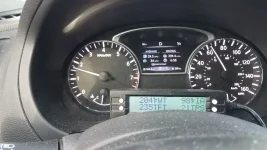Our Subaru has an extended goodwill warranty from SoA due to reported CVT issues. Dealer wont touch it, they just check for leaks and codes. There is no fluid change requirement until well over 100K miles IIRC in the O.M.Subaru states to inspect. If ours (Subaru) is a sealed system how would you inspect it? I'm assuming Toyotas are different?
I think since there had been a spate of NISSAN pusher-belt CVT failures, folks started doing partial drain and fills and there were with either Valvoline CVT or Castrol with (almost ) no failures reported. In fact, the only failure I've read about is from walterjay above in this thread. If the fluid is overfilled there can be foaming issues. This trans fluid goes from off the bottom of the dipstick to above the FULL HOT mark after a long commute. Thats why they are supposed to D&F at a specific temperature. My dealer overfilled mine. Pull the DS out and there are bubble all over the DS. Brought it back and they said " better over than under". Dopes. The consumer can do a d&f on their non leaking unit buy doing the drain and fill at ambient - the trans proper and the fluid normalized to ambient temp. Just measure what you drained and replace with same amount. Many shade tree have reported excellent service doing just that. and Using "Cheap Valvoline or Castrol fluid. Just a s good as the overpriced dealer stuff that is OE in the FAILING transmissions.
-Ken
Last edited:


